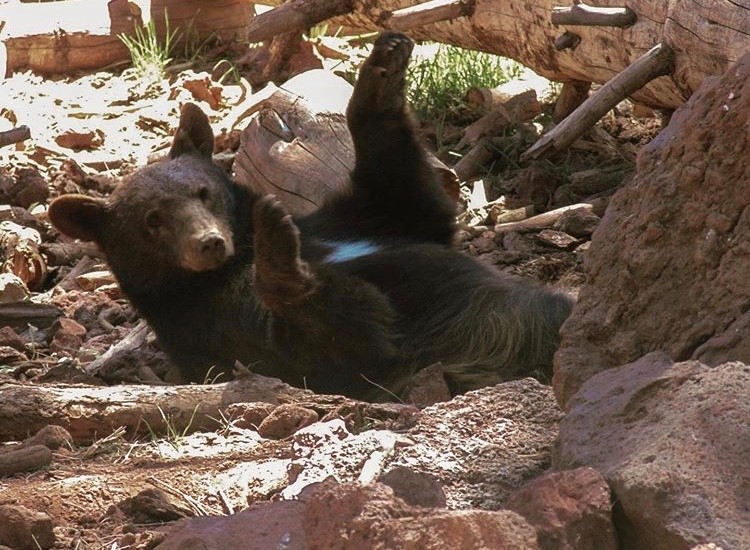Wildlife conservation is critical for maintaining the delicate balance of ecosystems worldwide. As human activities threaten biodiversity, efforts to protect wildlife have never been more vital. Understanding its significance, exploring ongoing global initiatives, and addressing existing challenges can inspire collective action to preserve the planet’s rich biodiversity.
MORE NEWS: Tripadvisor reveals the must-visit destinations for 2025
Why Wildlife Conservation Matters
Wildlife plays a crucial role in maintaining ecological stability. Animals, plants, and microorganisms interact in ways that support essential processes such as pollination, soil fertility, and water purification. When a species disappears, it disrupts these natural systems, leading to consequences that may be irreversible. For instance, the decline of pollinators like bees and butterflies affects crop production, directly impacting food security.
Biodiversity also provides cultural, scientific, and economic benefits. Many communities worldwide rely on wildlife for their livelihoods, whether through tourism, traditional medicine, or sustainable use of natural resources. Moreover, protecting wildlife contributes to combating climate change by preserving forests and other carbon-rich ecosystems.
The Role of Communities in Conservation
Community involvement is essential for long-term conservation success. Indigenous communities, in particular, possess invaluable knowledge about local ecosystems. Their sustainable practices and cultural traditions often align with conservation goals. Conservationists can ensure more inclusive and effective strategies by empowering these communities and recognizing their rights.
Education and awareness campaigns also play a crucial role. Schools, NGOs, and media outlets can inspire individuals to participate in conservation activities, such as reducing waste, supporting eco-friendly products, and advocating for wildlife protection policies. For example, conservation initiatives in Botswana have demonstrated how community engagement and education can yield remarkable results. Through programs that educate local communities about the benefits of wildlife preservation, Botswana has successfully protected its elephant population, turning the nation into a leader in wildlife conservation.
Global Threats to Wildlife
Habitat destruction remains the leading threat to wildlife. Deforestation for agriculture, urban development, and mining has displaced countless species, pushing them toward extinction. The illegal wildlife trade is another significant concern, targeting animals like rhinos, tigers, and pangolins for their parts. Climate change further exacerbates these issues, altering habitats and forcing species to adapt or perish.
Pollution is another critical factor. Oceans are increasingly polluted with plastics, threatening marine species, while industrial waste contaminates water sources, affecting freshwater ecosystems. Additionally, invasive species introduced by human activities disrupt native habitats, often outcompeting local species for resources.
Key Wildlife Conservation Efforts
Several international organizations and governments are addressing these challenges through innovative conservation strategies. Protected areas such as national parks and wildlife sanctuaries safeguard habitats and provide safe havens for species. Global initiatives like the United Nations’ Sustainable Development Goals (SDGs) emphasize preserving biodiversity for sustainable development.
Reintroduction programs have also gained momentum. Species like the Arabian oryx and the California condor have been successfully reintroduced into their natural habitats after being declared extinct in the wild. These projects highlight the potential of science and collaboration in wildlife recovery.
Technological advancements further enhance conservation efforts. Satellite monitoring, camera traps, and drones help track species and prevent poaching. Genetic studies provide insights into population health, aiding in targeted interventions for endangered species.
Challenges in Wildlife Conservation
Despite progress, significant challenges remain. Limited funding restricts many conservation projects, particularly in developing countries. Political instability and corruption can undermine efforts to enforce anti-poaching laws or protect conservation areas. Moreover, balancing human development with wildlife conservation often leads to conflicts, especially in regions where communities depend on natural resources for survival.
Rapid urbanization and industrialization further strain resources, leaving little room for biodiversity to thrive. Overcoming these challenges requires collaboration between governments, organizations, businesses, and individuals, supported by strong policies and adequate resources.
How Individuals Can Make a Difference
Individual actions contribute significantly to wildlife conservation. Simple steps, such as reducing single-use plastics, supporting sustainable tourism, and choosing ethically sourced products, can make a difference. Volunteering for conservation projects or donating to organizations working to protect wildlife also has a meaningful impact.
Advocacy is another powerful tool. Raising awareness about conservation issues within your community or through social media can amplify the message. Encouraging policymakers to prioritize environmental protection ensures that conservation remains a global priority.
Looking Ahead: A Shared Responsibility
Wildlife conservation is not just the responsibility of governments and organizations—it requires a collective effort. Preserving biodiversity ensures the planet’s health and stability, benefiting both nature and humanity. As global citizens, we are responsible for protecting wildlife and their habitats for future generations.
By embracing sustainable practices, supporting conservation initiatives, and advocating for change, we can create a world where wildlife thrives alongside human development. Wildlife conservation is a journey that requires commitment, collaboration, and compassion, a cause that holds the key to a balanced and vibrant planet.




